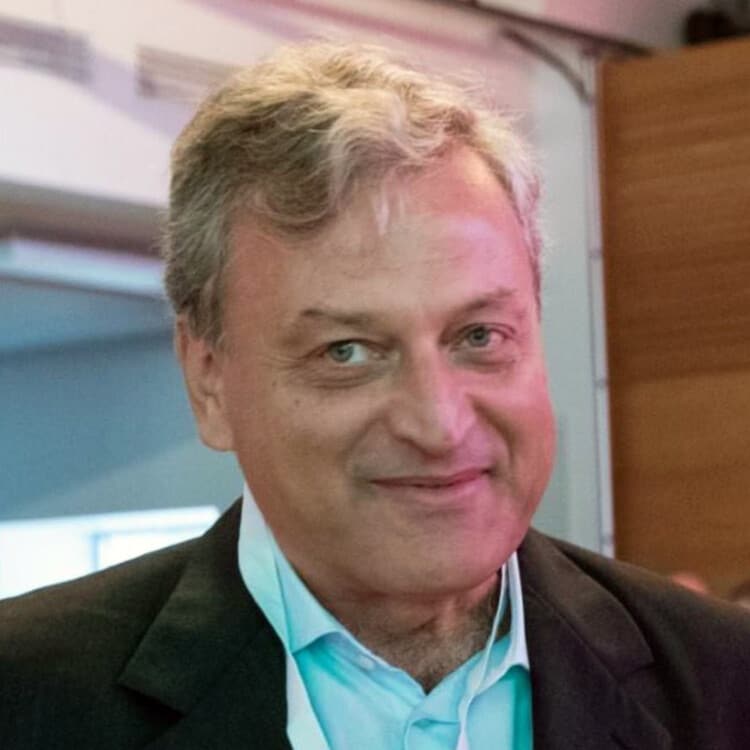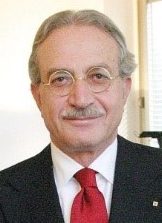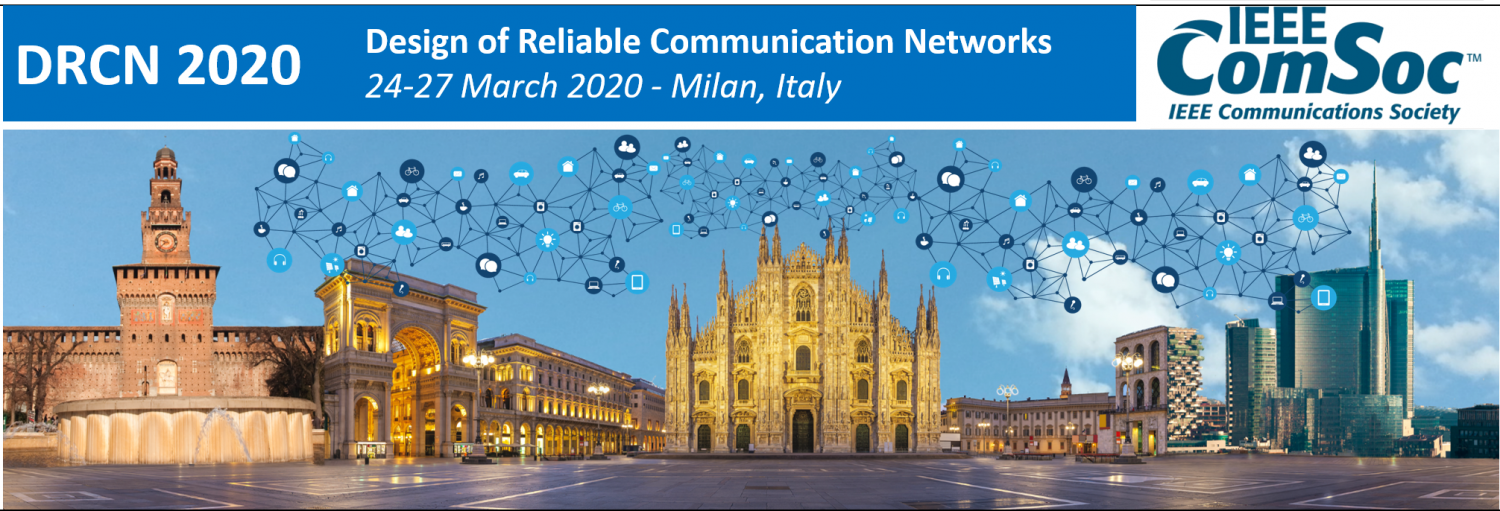Main Conference Keynote 1: Wednesday March 25, 16:50 – 17:35

Deep Medhi, Program Director, National Science Foundation, USA
Huge Workflows for Data Intensive Science: What about reliability?
Abstract: Science workflows for data intensive science are now routinely needing to address transferring of huge amount of data in the range of terabytes to petabytes. In this talk, I will discuss challenges we face with such huge-scale flows and their networking and reliability considerations.
Biography
Deep Medhi is Program Director in the Computer & Network Systems (CNS) Division in the Computer & Information Science & Engineering (CISE) Directorate at the National Science Foundation (NSF). He manages networking research programs as well as several research infrastructure programs such as NSF Future Cloud, Mid-Scale Research Infrastructure, and Cloud Access. He is on leave as Curators’ Distinguished Professor in the Department of Computer Science and Electrical Engineering at the University of Missouri-Kansas City (UMKC) under the IPA program. He is also an honorary professor in the Computer Science & Engineering Department at the Indian Institute of Technology-Guwahati, India. He received B.Sc. in Mathematics from Cotton College, Gauhati University, India, M.Sc. in Mathematics from St. Stephen’s College, University of Delhi, India, and his M.S. and Ph.D. in Computer Sciences from the University of Wisconsin-Madison, USA. Prior to joining UMKC in 1989, he was a member of the technical staff at AT&T Bell Laboratories where he worked on teletraffic network routing and design. While at AT&T Bell Labs, he co-developed Facility Diverse Routing – a feature deployed in AT&T’s nationwide dynamic routing network. His research interests are in network resilience, network routing and optimization, traffic engineering and design, network management, data center networking, and video quality-of-experience. He co-authored the books, “Routing, Flow, and Capacity Design in Communication and Computer Networks” (2004) and “Network Routing: Algorithms, Protocols, and Architectures” (1st edition, 2007; 2nd edition, 2017), both published by Morgan Kauffman/Elsevier. He is a Fellow of the Institute of Electrical and Electronics Engineers (IEEE).
Main Conference Keynote 2: Thursday March 26, 09:50 – 10:35

Roberto Sabella, Head of Ericsson Research branch in Italy
5G as key enabler for Industry transformation
Abstract: Starting from reviewing the business landscape and mobility trends, the speech will describe the relevance of 5G networks to enabling the digitalization of Industry and discuss relevant use cases in the framework of the evolution towards the Industry 4.0 paradigm. Few relevant real world examples of applications that Ericsson is experimenting in Italy, in the area of smart manufacturing, logistics, and port operations, will be reported.
Biography
Roberto Sabella joined Ericsson in 1988 after having graduated in Electronics Engineering at the University of Rome “La Sapienza” the year before. He is manager of the Italian branch of Ericsson Research and key player “5G for Italy” program in cooperation with TIM and several Industries in the national landscape. He is Vice-President of the Tuscany Technology District on “Smart Manufacturing 4.0”. His expertise covers several areas of telecom networks, such as packet-optical transport networks, transport solutions for mobile backhaul and fronthaul, and photonics technologies for radio and data centers. He has authored more than 150 papers for international journals, magazines and conferences, as well as two books on optical communications, and holds more than 30 patents. He was adjunct professor of “Telecommunications Equipment’s” at the University of Rome “La Sapienza” in the years 2002-2004. Sabella is also a senior member of the Institute of Electrical and Electronics Engineers (IEEE).
Workshop Keynote: to be rescheduled for a post-conference date

Maurizio Dècina, Emeritus Professor, Politecnico di Milano, Italy,
Life Fellow IEEE
5G: Virtualization and Security
Abstract: Network virtualization and network security are the most relevant aspects of the 5G cellular systems.
The first aspect refers to the full virtualization of network functions in every section of the network: access, transport and core. Cloud computing is executed both in the core network and at the network edges: Core Cloud Computing and Edge Cloud Computing. Such feature allows, on one side, the Network Slicing techniques to optimize network performance of various vertical market applications. On the other side, Edge Computing is used to optimize network performance, in terms of improved throughput and quality of experience, as well as reduced latencies, and massive data storage. Such Distributed Cloud Computing is orchestrated throughout the edge data centers, the metro and the core data centers, and it is realized according to the paradigm of Cloud-Native Computing.
The second aspect is crucial to the successful deployment of 5G systems, in view of the mission critical applications of the Internet of Things: autonomous driving vehicles, drones, industrial robots, tele-surgery applications, etc. Such 5G applications can create risks to human life. Hence, network security is of supreme importance when deploying such mission critical IoT applications. Communications security services in 5G systems evolve from the classical attributes of confidentiality, integrity and availability, to include two new attributes: “visibility” and “centralized security policy”: both exploit the orchestration of cloud computing resources. Security visibility refers to the disposal of a centralized dashboard for the pervasive monitoring of network status and attacks. The centralized policy allows a kind of Security-as-a-Service to provide “on demand” various network security functions, such as, intrusion detection & prevention probes, DPI, firewalls, etc.
Biography
Maurizio Dècina is Emeritus Professor of the Politecnico di Milano, Italy. He equally shared his 55-year career in telecommunications between industry and university. He was scientific consultant for AT&T Bell Laboratories in Chicago, scientific Director and founder of the CEFRIEL consortium, and Executive R&D Director of Italtel in Milan. Prof. Dècina was a Commissioner of the Italian Communications Authority, AGCOM, President of Infratel, President of the Ugo Bordoni Foundation, and Member of the Board of Telecom Italia, Italtel and several ICT Companies. Prof. Dècina was President of the IEEE Communications Society. IEEE appointed him Life Fellow for contributions to voice/data packet switching, and he received three IEEE Awards: International Communications, Third Millennium Medal, and ComSoc/KICS Global Service.
